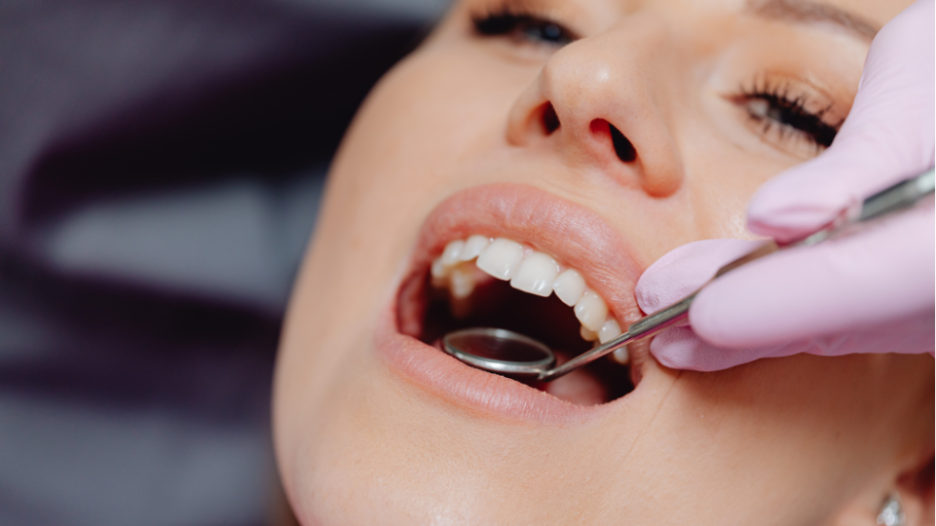Why Does the Roof of My Mouth Hurt? Common Causes, Symptoms, and When to See a Dentist
.png)
We often think of oral pain as something that affects our teeth or gums, but what happens when the roof of your mouth hurts? Whether it’s a sudden sting, dull ache, or sharp discomfort while eating, pain in the palate can be alarming and disruptive.
In this guide, we’ll explore:
- What causes pain in the top of your mouth
- Why the roof of your mouth hurts when eating
- When it’s a minor issue and when it’s something more serious
- How to treat and prevent future problems
1. Common Causes: Why Does the Roof of My Mouth Hurt?
Pain on the roof of the mouth (also called the palate) can have many causes. Some are simple and short-term, while others may need professional attention.
Thermal Burns
Have you recently eaten hot pizza, coffee, soup, or toasted bread? One of the most common reasons the roof of your mouth hurts is due to a thermal burn. The palate tissue is thin and sensitive, making it highly susceptible to heat-related injury. Pain may be immediate or develop within a few hours, and healing typically takes a few days.
Mouth Ulcers or Canker Sores
Small, round, painful sores may form on the hard or soft palate. These aphthous ulcers are not contagious, but they can be triggered by stress, irritation, or food sensitivities. If the top of your mouth hurts especially when eating spicy or acidic foods, a mouth ulcer could be the cause.
Fungal Infections (Oral Thrush)
A yeast overgrowth in the mouth, known as oral candidiasis, can lead to soreness and white patches on the palate. Thrush is more common in people with weakened immune systems, dry mouth, or those using inhaled corticosteroids.
Trauma or Abrasion
Crunchy chips, crusty bread, or even hard toothbrush bristles can cause small injuries to the roof of the mouth. This type of palate pain is often localized and typically heals quickly, unless the area becomes irritated repeatedly.
Viral or Bacterial Infections
If you’re experiencing mouth palate pain when eating, along with sore throat or swollen glands, an upper respiratory or sinus infection might be the culprit. Cold sores (herpes simplex virus) can also form on the palate, causing localized tenderness and discomfort.
2. Why Does the Roof of My Mouth Hurt When I Eat?
Pain that’s triggered or worsened by eating is a key sign of irritation or inflammation. Depending on the cause, the discomfort might feel:
- Sharp (burns or trauma)
- Stinging or tingling (ulcers, viral infection)
- Burning (thrush, acid reflux)
- Achy or radiating (sinus infection or referred pain)
If you’re only experiencing pain while eating certain foods, such as hot, spicy, acidic, or crunchy items, it may point to a surface-level issue like a burn or sore. However, persistent pain could indicate a deeper infection or inflammation that needs attention.
3. What About Pain from Underlying Conditions?
In some cases, roof of mouth pain may signal a systemic issue:
Burning Mouth Syndrome
A complex condition involving chronic pain, burning mouth syndrome typically affects postmenopausal women and may cause persistent burning, tingling, or pain in the palate, tongue, and lips. It has no clear cause but may be linked to nerve dysfunction, dry mouth, or hormonal changes.
Nutritional Deficiencies
Deficiencies in vitamins like B12, iron, or folate can lead to oral pain, pale tissue, or sores. These cases often involve symptoms across the mouth and tongue as well.
Growths, Lesions, or Tumors
Rarely, a persistent sore or lump on the palate that does not heal could indicate a benign or malignant growth. If you’ve noticed something unusual on the roof of your mouth for more than two weeks, get it evaluated right away.
4. When Should You See a Dentist?
Pain in the roof of your mouth may resolve on its own, but sometimes it’s a sign of something more serious. Contact your dentist if:
- The pain lasts more than 7–10 days
- You have visible sores or lesions that don’t heal
- You notice white patches, thickened tissue, or bleeding
- Eating becomes difficult or painful
- You experience a fever, fatigue, or swollen lymph nodes
Prompt treatment can prevent complications and ensure that infections or underlying conditions don’t worsen.
5. What You Can Do at Home
If the cause is mild (like a burn or sore), you can ease symptoms by:
- Avoiding spicy, hot, or crunchy foods
- Drinking cool water and eating soft foods
- Using saltwater rinses
- Practicing excellent oral hygiene
- Letting the tissue heal undisturbed
For fungal infections or persistent pain, antifungal medication or professional intervention may be necessary.

Related Reading: Why Daily Oral Care Matters
Your daily habits play a big role in oral health, including preventing painful issues like ulcers, infection, and inflammation. Learn how to care for your mouth between visits: How to Maintain Your Oral Health Between Dental Visits
When in Doubt, Trust the Experts
At West Soho Dentistry in New York, we understand that any kind of mouth pain can cause worry, especially when it’s unexpected or persistent. Our compassionate team, led by Dr. Joanne Oh, is here to help you identify the cause of your discomfort and provide expert care tailored to your needs.
Don’t let pain disrupt your daily life. Schedule your appointment today and let us help you get the relief and answers you deserve.

.png)
